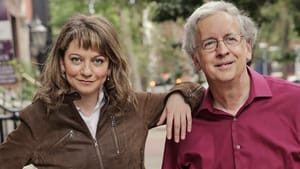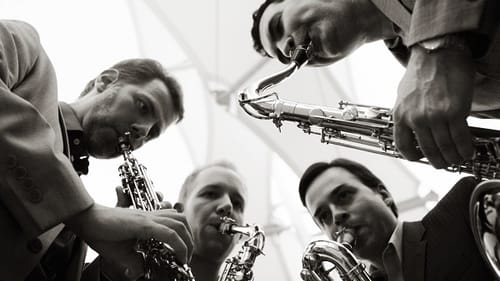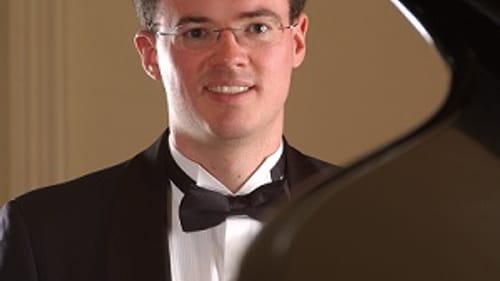Stay in the Loop
BSR publishes on a weekly schedule, with an email newsletter every Wednesday and Thursday morning. There’s no paywall, and subscribing is always free.
CDs featuring Philly-area performers
Stillman and Abramovic; Prism Quartet; Bengtson

Three recent CDs highlight performances by Philadelphia area musicians.
Freedom. Mimi Stillman, flute; Charles Abramovic, piano. Innova.
It is an old cliché that musicians who have been playing together for many years, such as a long-lived string quartet, make their art as if having conversations with one another, finishing each other’s sentences or engaging in a syncopated patter of thoughts. It can be a useful metaphor, and you can certainly hear this kind of advanced interaction in the playing of flutist Mimi Stillman and her regular colleague Charles Abramovic. Not only do they find just the right rhythmic balance, but their tones also interact in a lovely way, with Stillman’s always fresh, tightly focused sound finding a welcome embrace in Abramovic’s multihued tonality.
Freedom highlights that special relationship as the pair performs with contemporary music, plus the American premiere of a work that was written in Soviet Russia in 1947 by a close colleague of Shostakovich, Mieczysław Weinberg, whose music was suppressed by Stalin’s cultural apparatchiks at the time. This sweet, wistful, almost impressionistic work hardly sounds threatening, although Weinberg’s strong association with Shostakovich could not have helped his cause.
The balance of the program features two new works commissioned by Stillman, who has a remarkable record of bringing new music into the world. David Finko’s postapocalyptic music is necessarily dark, lower in energy than other music of his that I have heard, but strikingly original, with an expressionistic power delivered in a stealthy way. Richard Danielpour’s music is a sorrowful homage to his Persian ancestry and the current woes of that land, and is typical of this evolving composer’s strong lyrical gift. The wonderful Philadelphia Orchestra cellist Yumi Kendall rounds out the trio for this work.
Another notable feature of this recording is the sound itself, which is remarkably lifelike. That is a tribute to a venue that is fast becoming a favorite room for both live performances and recordings: Gould Rehearsal Hall at the Curtis Institute of Music.
Heritage/Evolution. Prism Quartet. Innova
The saxophone was invented by Belgian instrument maker Adolphe Sax in 1840 with the intent of expanding the woodwind section of the classical orchestra, but over the course of the 20th century it became the emblematic instrument of jazz. The Philadelphia/New York City-based saxophone quartet Prism (two members come from each of the two cities) spans both of those worlds with its repertoire, as exemplified by this exciting and richly rewarding double CD. Prism can best be described as a contemporary music ensemble, which can cover a lot of territory. The members themselves are conservatory-trained players and composers, and they have commissioned a broad range of new works by prominent composers.

Heritage/Evolution celebrates the many collaborations Prism has engaged in over the years, with guest composers and musicians on every cut. There is a jazz influence in every work, even if it is mainly heard in the rhythmic qualities. Elsewhere, genres from around the world bleed into sounds, including South Indian elements in the music of New York composer Rudresh Mahanthappa, Hungarian folk music (pace Bartók) in the highly compelling music of Tim Ries, and rich lyricism as well as Afro-Caribbean percussion in two substantial works by Miguel Zenón, who joins the quartet on alto sax in the works he wrote.
Much of the music is overtly in the jazz camp, especially the material that includes guest appearances by two veterans of the jazz scene, alto sax player Greg Osby and soprano sax player Dave Liebman, whose interplay has a pleasing yin-yang profile. They play together on each other’s compositions and conclude the entire program with a glowing arrangement by Liebman of John Coltrane’s Dear Lord.
Piano Music, Alexander Scriabin. Matthew Bengtson. Roméo Records.
Scriabin wrote solo piano music across his entire career, reflecting a seismic shift in his style, beginning in the late 19th century with music that is commonly characterized as post-Chopin Romanticism and ending in a blaze of chromatic dissonance that pointed ahead to the harmonic adventurism of the 20th century.

A standard of Scriabin performance style evolved in the 20th century amongst Russian pianists, including the legendary Sofronitsky, and especially Vladimir Horowitz. Wynnewood resident Matthew Bengtson openly acknowledges his debt to both figures, but his own playing is very different. As exciting as the old Russians could be, theirs was a style that drew out, and even exaggerated, the sensational qualities in Scriabin’s music, which can induce listener fatigue.
Bengtson’s wise approach is to allow the music to speak for itself; there is more than enough drama and dazzle already in the score. Furthermore, his more straightforward approach gives him the leeway to concentrate on such crucial elements as pacing and rhythmic inflection, areas in which these performances really excel. Bengtson has a knack for finding a natural pulse and tempo in his readings, a subtle quality that does not tend to knock the socks off of a listener in the way that Horowitz fireworks did, but that is essential for making the music spring to life.
That sense of momentum is also abetted by Bengtson’s seemingly easy mastery of the quirky rhythms of the music, especially in the later material, which is rife with oddly placed accents and almost jazzy syncopations. It makes perfect sense that Bengtson studied mathematics as well as music at Harvard.
What, When, Where
Freedom. Mieczysław Weinberg: Five Pieces for Flute and Piano. David Finko: Sonata for Flute and Piano. Richard Danielpour: Remembering Neda. Mimi Stillman, flute; Charles Abramovic, piano. Innova
Heritage/Evolution. Rudresh Mahanthappa: I Will Not Apologize For My Tone Tonight. Miguel Zenón: The Missing Piece. X Marks the Square. Tim Ries: Name Day. Steve Lehman: 15 Pieces at the Same Time. Greg Osby: Covenant of Voices. Dave Liebman: Trajectory. Coltrane/Liebman: Dear Lord. Prism Quartet. Innova
Alexander Scriabin: Piano Sonatas, Vols. One and Two. Matthew Bengtson, piano. Roméo Records. Available for download at Amazon (Volume I; Volume II)
Sign up for our newsletter
All of the week's new articles, all in one place. Sign up for the free weekly BSR newsletters, and don't miss a conversation.
